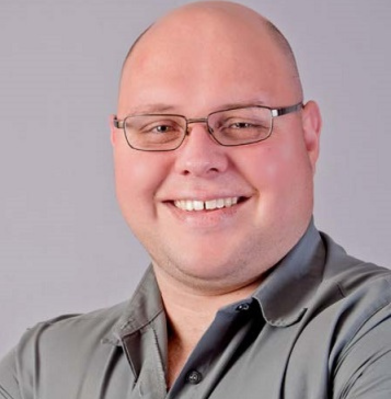

Founder: Turnaround Talk
The first few articles published by Turnaround Talk were very sobering after the well-deserved 2023 Festive break. It is back in the saddle of addressing severe challenges impeding economic growth.
However, as the famous Billy Ocean song title says: when the going gets tough, the tough get going. South Africans are well known for their astute business acumen and our ability to survive tough times. While there are key challenges that many companies need to address, some companies are taking 2024 by the scruff of the neck and trying to turn lemons into lemonade.
Failure is not an option for Pick n Pay
A News24 article points out that Pick n Pay has undertaken a major reorganisation of its senior leadership structure, creating in the process a new retail executive position that will play a key role in its turnaround plan for its struggling core supermarket business.
CEO Sean Summers told News24 the changes, which have created a six-strong executive management team, were necessary not only to sort out the day-to-day running of Pick n Pay with immediate effect but also to have the right leadership structure to execute the long-term plan to put the group back on a firm footing.
The article adds that Summers, who replaced former CEO Pieter Boone with immediate effect after his resignation in October, believes the team has what it takes to revive the fortunes of Pick n Pay. In October, the retailer reported that it had swung into its first-ever loss.
At the same time, he was hopeful of success, saying that “failure is not an option”. He added: You know, certainly, one has to be realistic about the challenges that lie ahead, and Pick n Pay as it sits currently is still challenged. But that doesn’t in any way, shape or form, give us fear for the future. In fact, it gives us even more sustenance and sense of purpose of what we need to achieve. But we are still a long way from getting out of the woods in the company.”
The appointments come from within the group’s existing structures and will see a core group executive team of six members, which Pick n Pay said in a statement would combine a “strong mix of experience and energy”.

Image By: Getty Images
A diversified mix
The News24 article points out that three of the group executive team were women, including group CFO Lerena Olivier, chief people officer Thembi Mbengashe and Hazel Pillay, who is the Managing Executive for clothing.
Dallas Langman, who has been with the group for 34 years, has been appointed to the newly created position of Managing Executive of the Pick n Pay Retail division. Langman previously was the managing executive for the rest of Africa division.
Pick n Pay said Langman was respected for his ability to drive consistent operational standards and team performance and will work closely with Summers to lead a step-change in the performance of the core Pick n Pay retail business.
The article adds that Johan Grobler, meanwhile, who has been with Pick n Pay for 32 years, will take over leadership of the rest of Africa from Langman.
He will have additional responsibility for value-added services and Tomis, the newly acquired meat-producing and processing facility. He most recently headed up fresh produce and trade within Pick n Pay’s retail division. Marek Masojada remains the Managing Executive of Boxer, Pick n Pay’s discount retail chain.
Explaining the rationale behind the new structure, Summers said it had been clear from the three months he had spent at the helm that Pick n Pay had not been running its business adequately “as we sit every single day when we open our stores. And that shows in [the] inconsistency that we currently have in the company,” said Summers.
A light at the end of the loadshedding tunnel
Another News24 article points out that last year, South Africa’s private sector registered approximately 4 490MW of renewable energy projects – nearly three times as much as in 2022.
These private generation projects, which include mostly solar PV and wind power, undertaken in 2023, dwarf the meagre 134MW registered in 2021 – 33 times more.
This is according to information from the National Energy Regulator of South Africa (Nersa). Generation facilities are required to be registered with the energy regulator.
The article adds that the growth in private renewable energy is reflective of the impact of a regulatory reform that, from 2022, dropped the requirement for generation facilities to obtain a licence. The licensing requirement lengthened the timelines for projects to be implemented.
This intervention was made to ease pressure on the national power system by allowing for the accelerated rollout of energy generation alternatives for businesses and industries, this as the country faces an ongoing energy crisis. Load shedding was at its worst in 2023.
The article points out that projects still have to register with Nersa, which is a much shorter process. Nersa’s database shows that most of the projects registered in 2023 rely on solar PV – which converts sunlight into electricity. The second-most prevalent technology is wind.
In a post on social media platform X (formerly Twitter), Gaylor Montmasson-Clair, senior economist at the Trade and Industrial Policies (TIPS), noted that a handful of large wind projects – these are greater than 100MW – were registered in 2023, leading to a greater share of wind power than in 2022.

Image By: Kindel Media via Pexels
One step at a time
The late Demond Tutu once said that the only way to eat an elephant is one piece at a time. This proverb may seem a bit obscure, but it metaphorically depicts how to address a gargantuan task, one step at a time and with a plan in place.
The South African economy is currently in disrepair with challenges that may seem impossible for many companies. The smart money is that many companies will turn to business rescue and liquidation to address their financial distress.
Regarding leadership, perhaps 2024 is the year where change management will take centre stage within companies.
Regarding the economic impact of loadshedding, are there opportunities for companies to take advantage of them? If the newly published Integrated Resources Plan (of 2023) goes according to script, we will be in for more loadshedding this year than the 284 days of full loadshedding experienced in 2023. There is no wonder that solar companies have seen this as a window of opportunity to make hay while the sun shines. The window of opportunity for these companies is present and shows no signs of fading off into the sunset. However, this may have been the thought of many Covid-related services (i.e. office fogging and car fogging services), and we know the window of opportunity abruptly slammed shut when South Africa got a handle on the pandemic.
Early intervention will be a crucial ingredient in resolving economic challenges in 2024.




